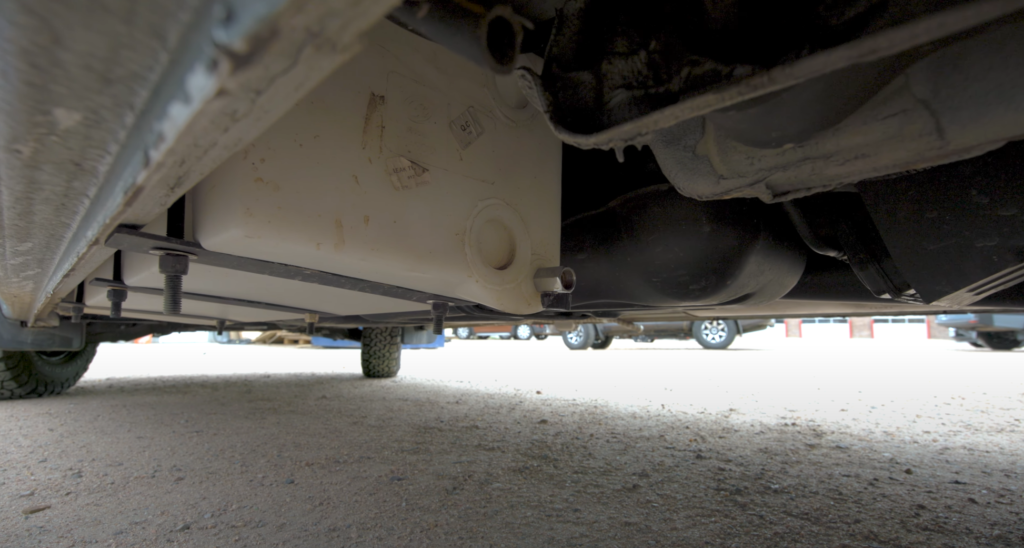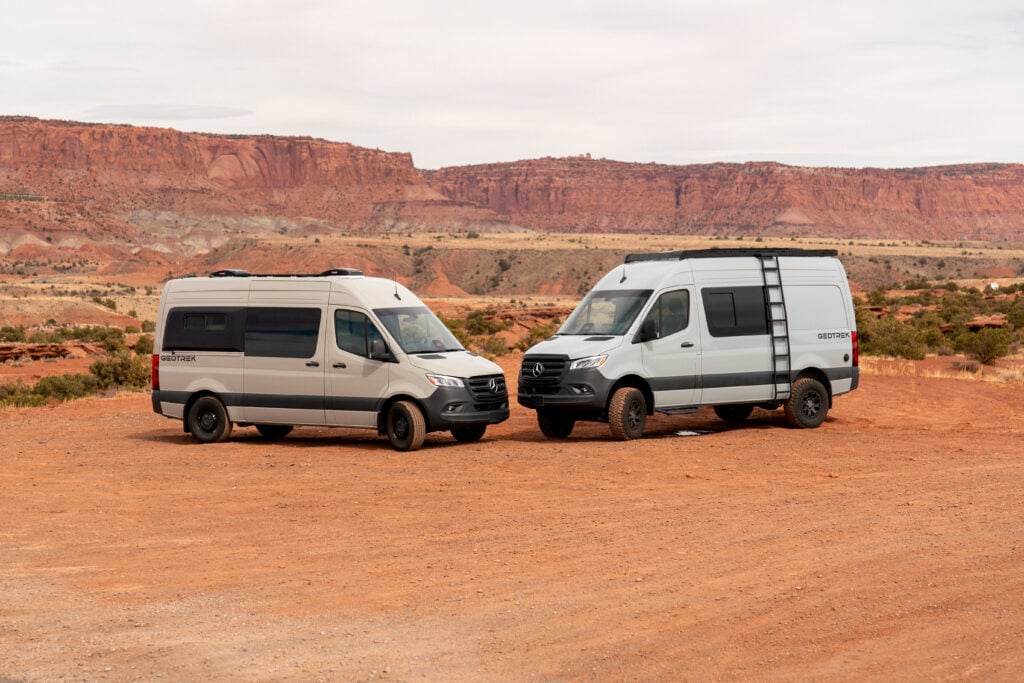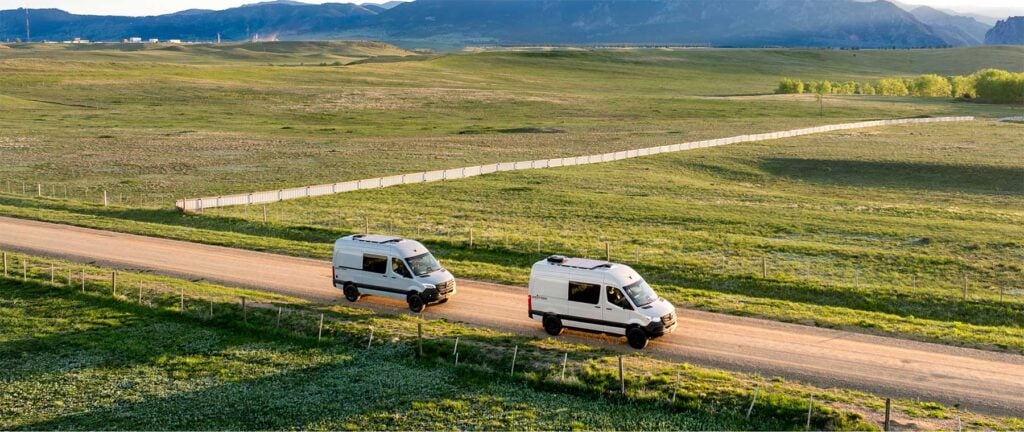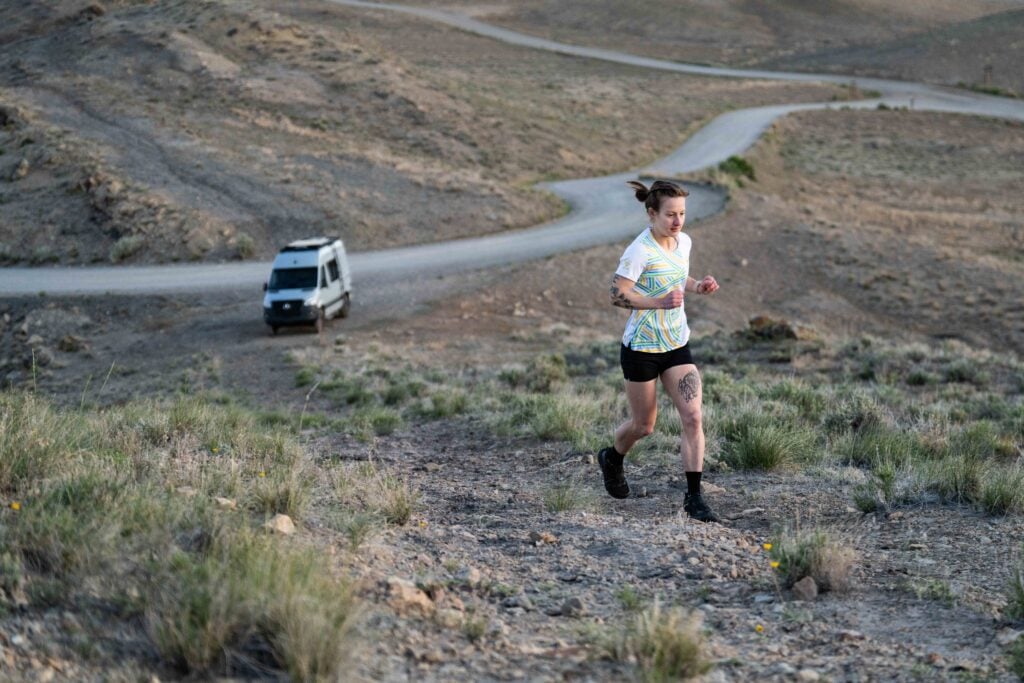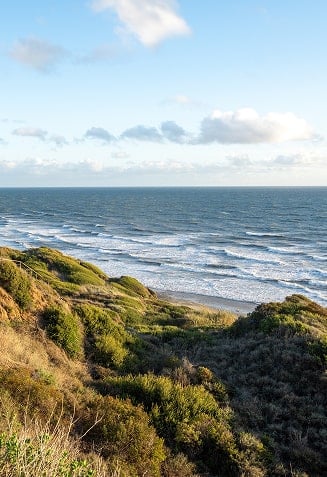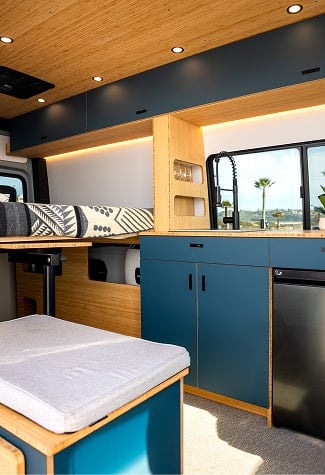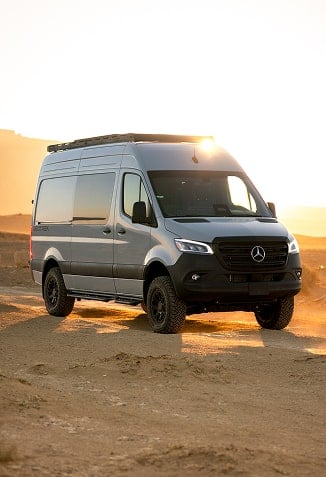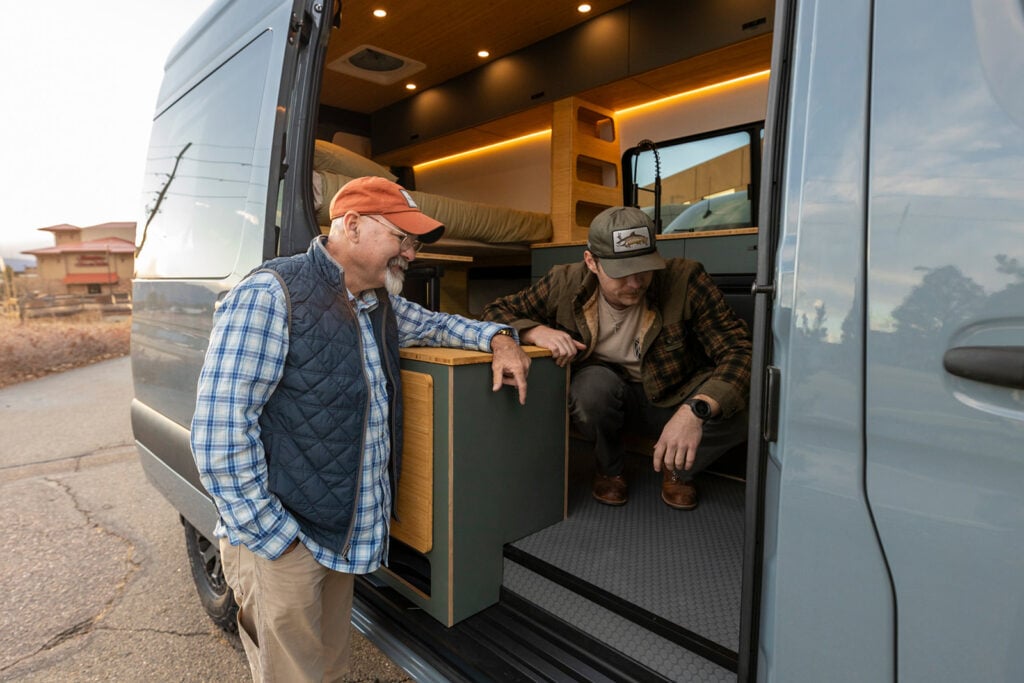Going off-grid isn’t just about parking away from a campground for a night. To be fully off-grid in a camper van means being able to live, cook, sleep, and recharge comfortably for days or even weeks without plugging into shore power or relying on hookups.
That takes more than a bed in the back of a van — it requires the right systems, the right layout, and the right build quality.
Here’s what really matters when you’re looking for a van that can handle true off-grid living.
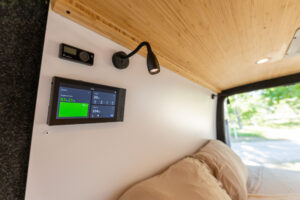 Power Systems: The Foundation of Off-Grid Living
Power Systems: The Foundation of Off-Grid Living
Power is the single most important factor in whether a van can stay off-grid or not. A weekend away is easy; real off-grid living requires enough energy to run all the essentials for days at a time.
What to Look For in Off Grid Camper Van Power Systems
- Lithium batteries (LiFePO4): Long-lasting, deep-cycle batteries are the gold standard for off-grid power.
- Inverter capacity: At least 3,000W so you can run induction cooktops, coffee makers, and outlets simultaneously.
- Solar integration: Panels that recharge your system when you’re parked.
- Alternator charging: A way to top up batteries while you’re driving.
- System reliability: Safe, integrated components with simple monitoring.
How Geotrek Builds Reliable Power for Off Grid Living
- Bear Peak comes standard with a 5 kWh EcoFlow Power Kit, enough to keep the fridge cold, run induction cooking, power fans, and keep devices charged for days without hookups.
- Flatiron ups the ante with a 10 kWh EcoFlow Power Kit, giving you the capacity to run A/C off-grid and handle heavy energy loads on longer trips.
This isn’t “weekend warrior” power. These systems are designed for people who want real independence.
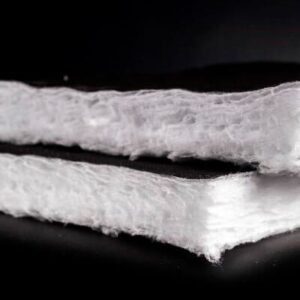
Insulation and Climate Control
When you’re off-grid, the weather becomes a much bigger factor. High-altitude nights can dip below freezing, while desert afternoons hit triple digits. Without real insulation and climate systems, the van can quickly become uncomfortable — or even unsafe.
What to Look For in Off Grid Van Insulation & Climate Control
- Thermal insulation: A barrier that actually regulates cabin temperature.
- Reliable heat: Diesel heaters that don’t drain battery power.
- Cooling and airflow: A/C, roof fans, and screened ventilation.
How Geotrek Builds Vans for Year-Round Comfort
Geotrek vans are wrapped in Lizard Skin thermal barrier insulation, keeping the interior stable in both hot and cold weather. For heating, every build includes an Espar diesel heater that runs cleanly without draining your batteries. For airflow, MaxxAir fans come standard, while the Flatiron includes a high-performance Velit 2000R A/C that runs directly from its 10 kWh EcoFlow system — no hookups required.
Comfort isn’t optional off-grid. It’s what makes staying out there possible.
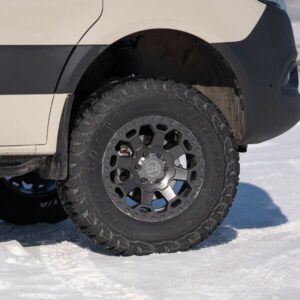
Off-Road Capability
Getting off-grid means leaving paved highways behind. If your van can’t handle dirt roads, steep climbs, or rough terrain, you’ll never reach the places you dream about camping.
What to Look for in an Off Road Van
- AWD or 4×4 chassis: Essential for traction and confidence on tough roads.
- All-terrain tires: Better grip and durability than standard van tires.
- Ground clearance: To clear rocks, ruts, and uneven trails.
How Geotrek Builds Vans for Real Terrain
Every Geotrek van starts with the Mercedes Sprinter AWD chassis, giving you confidence on rough roads and steep climbs.
The Flatiron comes standard with BFG KO3 all-terrain tires, built for grip and durability on dirt, snow, and rocky terrain. On the Bear Peak, the KO3 upgrade is available for drivers who want maximum off-road traction.
These builds are tested on the same Colorado backroads and mountain passes our customers explore — so you know they’re ready for real conditions.
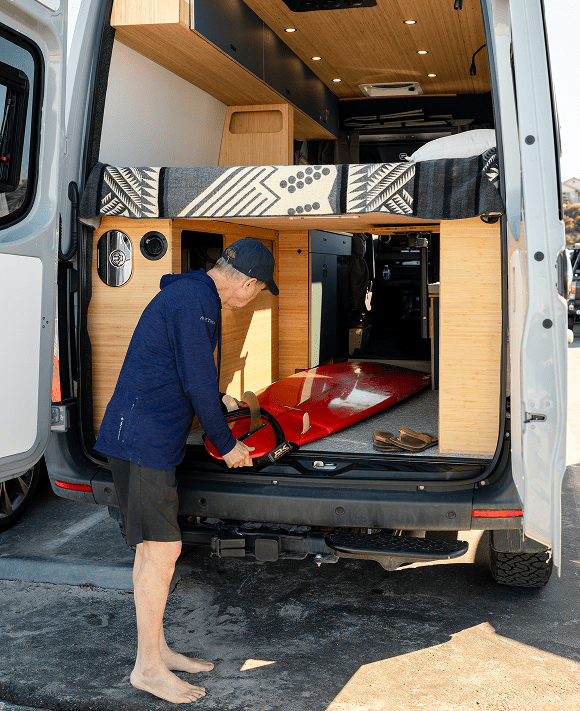
Storage and Layout
Living off-grid means hauling gear: bikes, skis, surfboards, climbing racks, photography kits. If your van doesn’t have room for it, the adventure gets cut short.
What to Look For in Camper Van Storage
- Dedicated garage storage: For big gear like bikes and boards.
- Durable cabinetry: Strong enough for daily use without warping or breaking.
- Balanced layout: Space for both living and storage.
How Geotrek Designs Smart Storage & Layouts
Geotrek’s garage layouts are designed to swallow bulky gear while keeping the living area open and uncluttered. Premium cabinetry and finishes handle daily wear and tear, while flexible layouts mean you don’t have to choose between storage and comfort.
Reliability and Build Quality
Off-grid, there’s no backup plan. If something breaks, you can’t call roadside service or find a replacement part at the next exit. That’s why build quality and system reliability matter as much as features.
What to Look For in a Reliable Off Grid Adventure Van Build
- Proven systems: Components that have been tested in real conditions.
- Experienced builders: Teams that understand the difference between marketing and field-tested design.
- Direct accountability: No middlemen or dealer markup between you and the people who built your van.
How Geotrek Builds Vans You Can Depend On
With over 300 vans built in Boulder, Colorado, Geotrek has refined its layouts and systems through real-world testing. Selling direct-to-consumer means no inflated dealer prices — just premium builds designed to last, backed by a team you can call directly.
The Bottom Line
Being fully off-grid in a camper van means more than driving away from the city. It means having the power, insulation, climate control, off-road capability, storage, and reliability to stay there comfortably.
That’s why these are the systems you should look for — and why Geotrek builds them into every van that leaves our shop.

